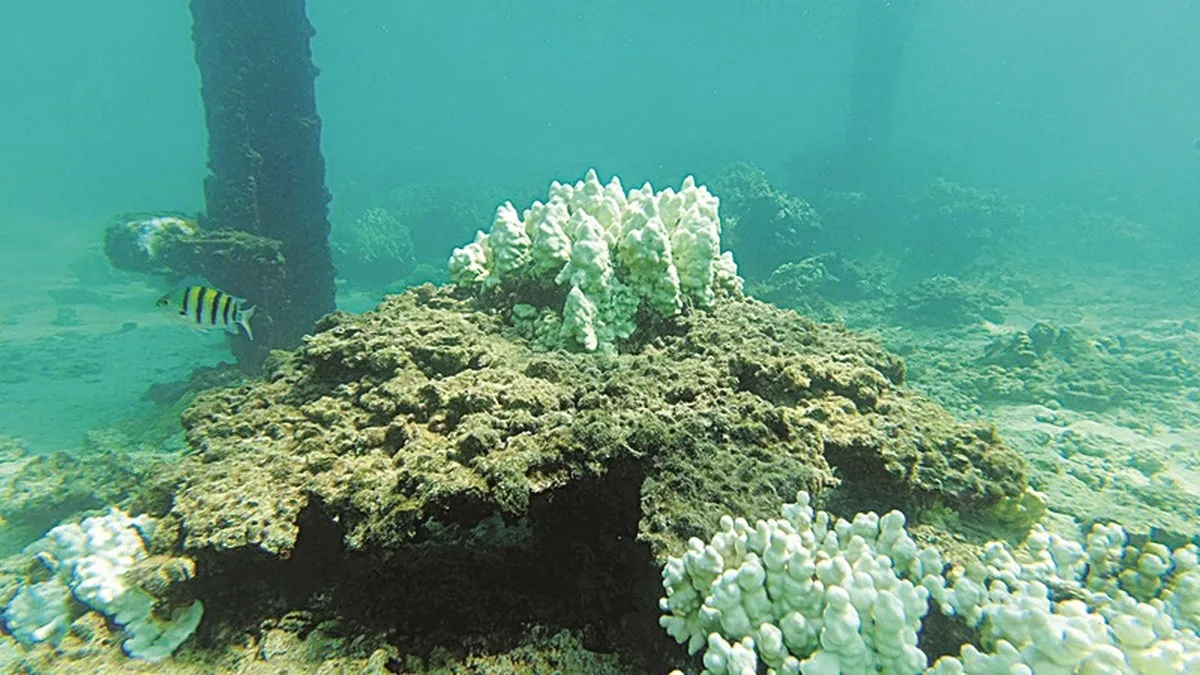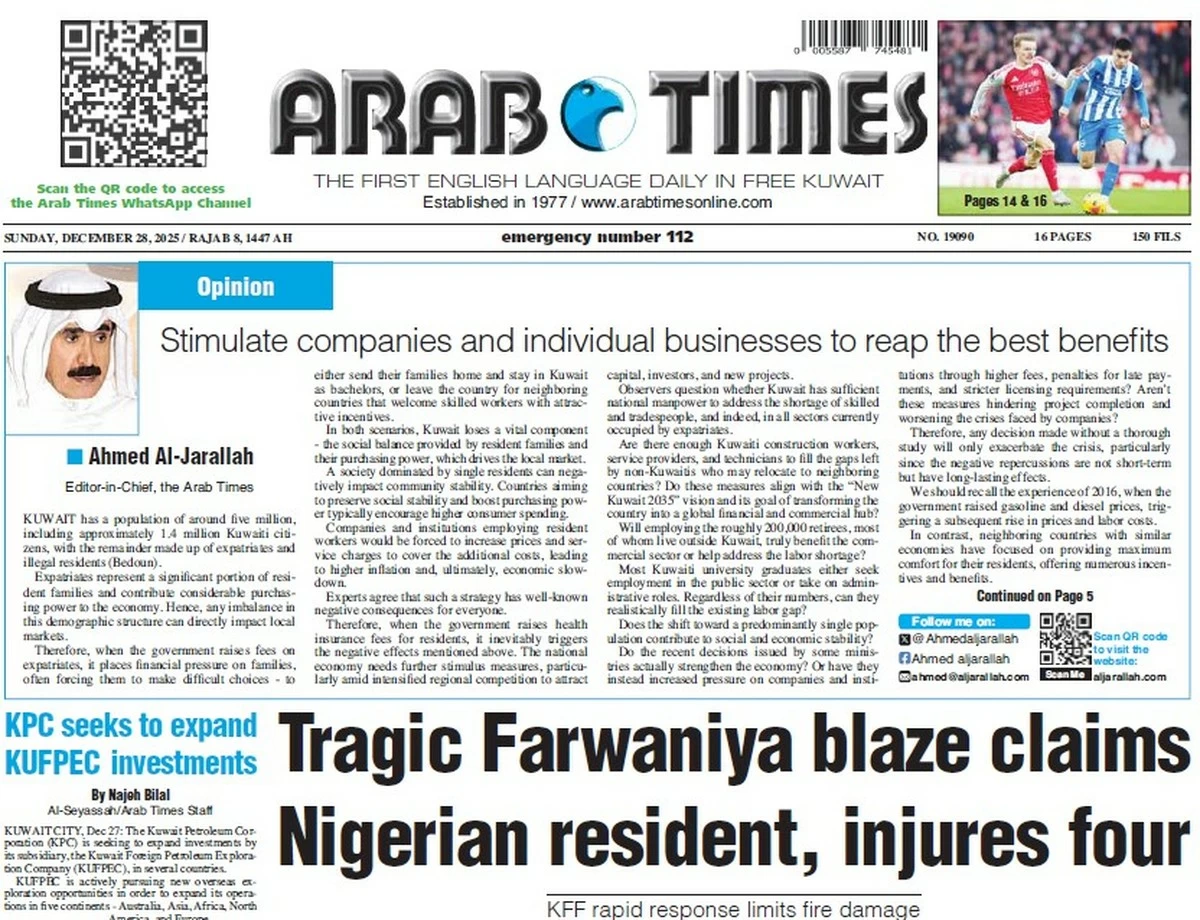22/01/2025
22/01/2025

KUWAIT CITY, Jan 22: A British environmental official praised Kuwait's commitment to global cooperation in addressing climate change and current environmental challenges. He emphasized the importance of such collaboration in combating climate change and protecting the environment, particularly marine ecosystems.
This statement was made during an interview with Kuwait News Agency (KUNA) following the official visit of Neil Hornby, CEO of the British Centre for Environment, Agriculture, and Fisheries (CEFAS), to Kuwait. The visit, in cooperation with the British Embassy, marked the 10th anniversary of CEFAS’s operations in Kuwait.
Hornby described climate change, with its rising temperatures and sea levels, as a global challenge requiring collective efforts to reduce its impact on both the environment and human populations. He commended Kuwait’s dedication, demonstrated by its government and environmental organizations, to international cooperation on this issue.
During his visit, Hornby highlighted the vital programs and projects CEFAS has collaborated on with several Kuwaiti institutions, including the Kuwait Institute for Scientific Research, the Environment Public Authority, and the Regional Organization for the Protection of the Marine Environment. These programs range from field studies and research on the impact of climate change on marine life, especially the increasing temperatures in the "hottest sea in the world," the Arabian Gulf, to investigating solutions to pollution, particularly the destruction caused by plastic waste.
Hornby noted that Kuwait’s location in one of the hottest regions of the world places it among those most affected by rising temperatures. However, this geographical advantage makes it a key site for research on marine life adaptation to these changes. He stressed the importance of sharing this valuable data with global governments and environmental organizations to mitigate the adverse effects of climate change. Over 25 scientific research papers have been published in collaboration with the British Centre and its Kuwaiti counterparts.
An example of this collaboration includes studies on coral reefs, where despite the adverse effects of increased temperatures in the Arabian Gulf, researchers have observed that corals there show more adaptability compared to those in the Red Sea. This finding provides crucial insights beneficial to the global community.
Hornby also highlighted joint programs focused on preserving marine life and raising awareness about the environmental challenges. He emphasized the need for global unity to protect the marine environment for both current and future generations.
He was particularly impressed by the enthusiasm and engagement of Kuwaiti youth during his visit to the Kuwait International English School. Their active participation in environmental conservation, including forming a club to clean beaches, reflects a positive outlook on future generations’ commitment to maintaining clean and healthy marine ecosystems. The students demonstrated a clear understanding of the importance of protecting marine life for human survival and development.
Regarding the challenges facing scientific research in Kuwait, Hornby mentioned the extreme summer temperatures, which exceed 50 degrees Celsius, as a major obstacle. However, he praised the perseverance and determination of scientists working under such harsh conditions to safeguard the environment for future generations.
Hornby also expressed appreciation for the British Embassy's efforts in maintaining strong cooperation between UK agencies and their Kuwaiti counterparts. He acknowledged the role of the State of Kuwait and its affiliated organizations in preserving both the local and global environment, and he hoped that this active cooperation would continue to benefit global environmental efforts.
The British Centre for Environment, Agriculture, and Fisheries (CEFAS) is the scientific arm of the British government, dedicated to providing information and solutions for addressing environmental challenges. CEFAS collaborates with organizations and governments worldwide, including those in the Arctic and Antarctic, and supports agricultural development in Southeast Asian countries such as Bangladesh.


